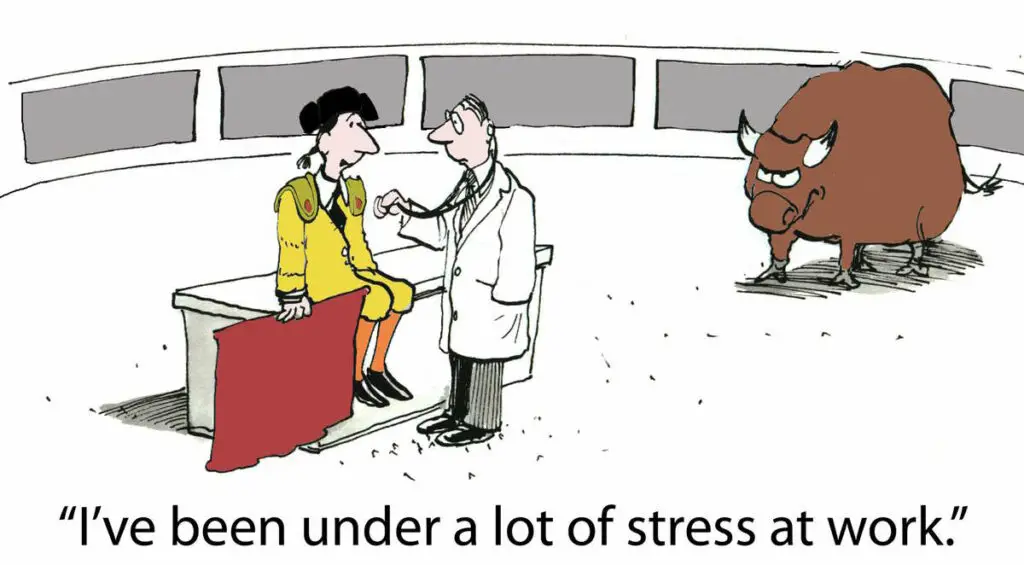Key Takeaways

Introduction
Stress is an inherent part of life. It is our body’s natural reaction to challenging or threatening situations, prompting a ‘fight or flight’ response. This response can manifest physically and mentally, affecting our emotions, behaviour, and overall well-being.[1]
Blood pressure, measured in millimetres of mercury (mmHg), is the force that your heart uses to pump blood around your body. It’s denoted by two numbers: systolic pressure (the force at which your heart pumps blood around your body) over diastolic pressure (the resistance to the blood flow in the blood vessels). As per the American Heart Association’s 2017 guidelines, a normal blood pressure reading is below 120/80 mmHg, elevated blood pressure ranges from 120-129/<80 mmHg, while hypertension (high blood pressure) is categorized into two stages: 130-139/80-89 mmHg and 140 or higher/90 or higher mmHg.[2]
Scientific research has increasingly been linking stress to blood pressure, although the relationship is complex and depends on the type, intensity, and duration of the stressor. Chronic or prolonged stress can cause significant increases in blood pressure over time.[3] Moreover, high blood pressure due to chronic stress can further elevate the risk of cardiovascular diseases and other health problems.[4]
How Stress Causes Your Blood Pressure to Rise Temporarily
Stress triggers a physiological response that releases hormones such as adrenaline and cortisol into the bloodstream. These hormones cause your heart to beat faster, your blood vessels to narrow (vasoconstriction), and your body to retain more water, all of which lead to a temporary increase in blood pressure.[5]
Typical situations that can cause acute or short-term stress include traffic jams, deadlines at work, arguments, exams, or unexpected emergencies. These events can cause a short-lived spike in blood pressure, which usually normalizes once the stressor is resolved.[6] However, if these spikes in blood pressure occur too frequently or intensely due to recurrent stress, it could lead to long-term health problems.
How Stress Leads to Unhealthy Behaviours that Raise Your Blood Pressure in the Long Term
Chronic stress can have profound psychological and emotional effects that influence our choices and behaviours. For example, individuals under chronic stress might resort to smoking, drinking alcohol excessively, overeating, particularly unhealthy foods, neglecting exercise, and experiencing disrupted sleep patterns.[7]
Such behaviours negatively affect blood pressure over time. For instance, smoking and excessive alcohol can damage the blood vessels, contributing to higher blood pressure. Overeating, particularly high-sodium and high-fat foods, can lead to weight gain and increased cholesterol levels, both of which are risk factors for high blood pressure. Lack of physical activity and poor sleep can also raise blood pressure levels and disrupt your body’s natural rhythm.[8]
How to Manage Your Stress Levels and Lower Your Blood Pressure
Managing stress can significantly benefit your blood pressure levels and overall health. Some effective ways to cope with stress include practicing relaxation techniques like deep breathing exercises, mindfulness meditation, or progressive muscle relaxation. Regular physical activity, whether it’s aerobic exercises, resistance training, or flexibility-enhancing yoga, is also beneficial for stress management and blood pressure control. Consuming a balanced diet rich in fruits, vegetables, whole grains, and lean proteins, and getting enough sleep (7-9 hours per night for adults) can also support your body’s ability to manage stress.[9]
Engaging with your social network—friends, family, and community—can provide emotional support and help alleviate stress. If the stress becomes overwhelming or unmanageable, seeking professional help through counselling or therapy can provide strategies and coping mechanisms.[10]
To implement these strategies in your daily life, it might help to set priorities, plan ahead, delegate tasks, and set boundaries by learning to say “no” when necessary. Regular breaks, engaging in enjoyable activities, and maintaining a positive mindset can also help manage stress levels.

Conclusion
Understanding the relationship between stress and blood pressure is crucial in promoting overall health. Chronic stress can trigger temporary blood pressure spikes, while also encouraging unhealthy behaviours that can lead to long-term blood pressure problems. However, by effectively managing stress—through relaxation techniques, regular exercise, a balanced diet, adequate sleep, social support, and professional help when needed—we can control blood pressure levels and reduce the risk of complications such as heart disease, stroke, and kidney damage. It’s never too late to take action and make positive changes in your lifestyle.
References:
- Yaribeygi, H., Panahi, Y., Sahraei, H., Johnston, T. P., & Sahebkar, A. (2017). The impact of stress on body function: A review. EXCLI journal, 16, 1057–1072. Link
- Whelton, P. K., Carey, R. M., Aronow, W. S., Casey, D. E., Collins, K. J., Himmelfarb, C. D., … & MacLaughlin, E. J. (2018). 2017 ACC/AHA/AAPA/ABC/ACPM/AGS/APhA/ASH/ASPC/NMA/PCNA guideline for the prevention, detection, evaluation, and management of high blood pressure in adults: a report of the American College of Cardiology/American Heart Association Task Force on Clinical Practice Guidelines. Journal of the American College of Cardiology, 71(19), e127-e248. Link
- Kivimäki, M., & Steptoe, A. (2018). Effects of stress on the development and progression of cardiovascular disease. Nature Reviews Cardiology, 15(4), 215-229.Link
- Rozanski, A., Blumenthal, J. A., & Kaplan, J. (1999). Impact of psychological factors on the pathogenesis of cardiovascular disease and implications for therapy. Circulation, 99(16), 2192-2217. Link
- Barnes, P. J., Dweik, R. A., Gelb, A. F., Gibson, P. G., George, S. C., Grasemann, H., … & Martin, R. J. (2010). Exhaled nitric oxide in pulmonary diseases: a comprehensive review. Chest, 138(3), 682-692. Link
- McEwen, B. S., & Stellar, E. (1993). Stress and the individual. Mechanisms leading to disease. Archives of internal medicine, 153(18), 2093-2101. Link
- Torres, S. J., & Nowson, C. A. (2007). Relationship between stress, eating behavior, and obesity. Nutrition, 23(11-12), 887-894. Link
- Felver, J. C., Butzer, B., Olson, K. J., Smith, I. M., & Khalsa, S. B. S. (2020). Yoga in public school improves adolescent mood and affect. Contemporary School Psychology, 24(3), 274-282. Link
- Fries, E., Dettenborn, L., & Kirschbaum, C. (2009). The cortisol awakening response (CAR): facts and future directions. International Journal of Psychophysiology, 72(1), 67-73. Link
- Clough, B. A., March, S., Chan, R. J., Casey, L. M., Phillips, R., & Ireland, M. J. (2017). Psychosocial interventions for managing occupational stress and burnout among medical doctors: a systematic review. Systematic reviews, 6(1), 144. Link